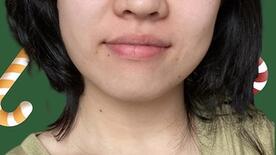The prevalence of hadronic jets at the LHC requires a deep understanding of jet formation both experimentally and theoretically. The microscopic dynamics of hadronic collisions is faithfully imprinted in the radiation patterns within jets, the study of which goes under the name jet substructure. This thesis documents two analyses performed using the 140 fb-1 full run data of pp-collions at √s = 13 TeV taken with the ATLAS detector. Part I presents the first measurement of jet track functions, which is a class of universal non-perturbative objects that cannot be calculated from first-principles and therefore must be precisely extracted from data. The data are corrected for detector effects using Iterative Bayesian Unfolding (IBU) as well a machine learning-based method named OmniFold. Publication of this measurement will enable theoretical predictions of track-based jet substructure observables, opening up a new class of opportunities to study jet formation with unprecedented precision and to broadly improve the sensitivity of new physics searches at the LHC. The second part of this thesis lays the foundation for a new search for a dark vector boson Zd, which was proposed as the mediator of an U(1)d extension to the Standard Model. The new Zd boson is presumed to exist within the mass range 65 ~ 115 GeV and searched for in the H → Z* Zd → 4l (l = e, μ) decay channel, which is an uncharted region of phase space and take advantage of clean environment and precise Monte Carlo simulations of the four-lepton channel. Preliminary upper limits on the H → Z* Zd → 4l (l = e, μ) cross section was set using Asimov dataset, paving the way for future development of the study.
Thesis committee: Keith Baker (advisor), Sarah Demers, Helen Caines, Ian Moult

Physics Dissertation Defense: Jingjing Pan, Yale University, “Exploring the Standard Model and Beyond Through the Lens of Jet Substructure and Deep Learning with the ATLAS Experiment”
Event time:
Wednesday, August 7, 2024 - 1:30pm to 2:30pm
Location:
Wright Lab, WL-216 (Conference Room)
272 Whitney Avenue
New Haven, CT
06511
Speaker/Performer:
Jingjing Pan, Yale University
Admission:
Free
Event description:
Contact:
(see "Description" above)

